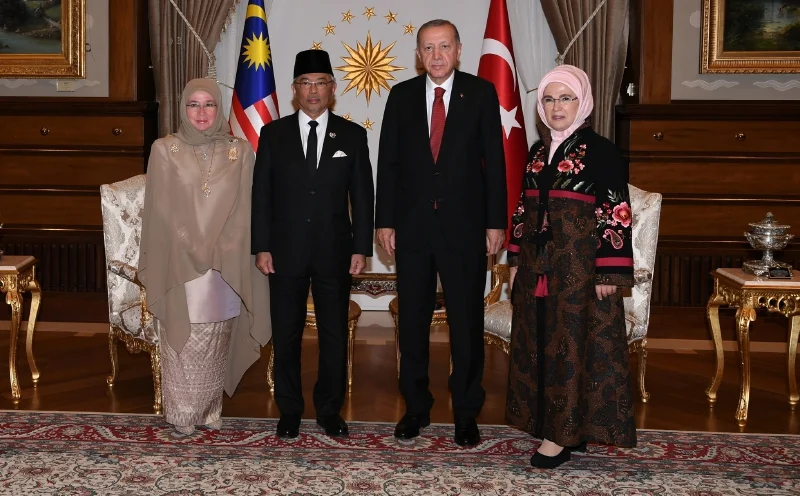Introduction
This article elucidates how military technologies can be used for peaceful purposes and the ongoing Covid-19 global pandemic will serve as a foundation to argue how a military technology, now widely used for civilian purposes, can be strategised in three military strategies to defeat Covid-19, and use it as a model to build joint cooperation globally to respond to future pandemic risks.
There are many instances of military technologies being used for peaceful purposes. For example, the humble duct tape was initially designed to hold ammunition boxes closed but able to rapidly open the boxes when in need. Today, the duct tape is a common household item used for multiple purposes. The internet that we take for granted today also has a military origin. The US Department of Defence’s Advanced Research Projects Agency (ARPA) designed the ARPANET (Advanced Research Projects Agency Network) for computerised operational research and connecting a network of computers for sharing information and connect researchers studying about nuclear ballistic defence and offence systems and Vietnam War operational issues. Drones that some commentators claimed as the future of warfare today had its origins during World War II. The Germans had designed and used the Fritz X guided anti-shipping bombs while the United States tested and used a remotely flown drone in bombing missions, the TDR-1, in Guadalcanal. Drones today are used for various peaceful purposes such as aerial surveillance of environmental pollution, delivery of goods, and for recreational purposes such as shooting videos and pictures from the air.
Cyber Technology
This article will argue how cyber technology can be utilised in three strategic ways to manage the Covid-19 pandemic globally and prevent future pandemics from erupting.
The Covid-19 is an ongoing pandemic that has hit the world badly since early last year. Continued mutations of the virus and lockdowns have resulted in serious and dire health and economic ramifications for a large number of states globally. Although numerous vaccines have been developed, the vaccination rates are mixed. One of the main reasons is that there are a lot of fake news circulating in the cyber world deliberately misleading and confusing people about the risks and effectiveness of vaccines. Without worldwide mass vaccinations, the global population will not achieve herd immunity to defeat the virus.
There are also reports of slow or ineffective responses among some states that could have been better informed by sharing of latest medical data and technologies as well as best practices in handling Covid-19 by other states that are more advanced and has better track records in dealing with Covid-19. Another key aspect of the ongoing Covid-19 pandemic is, what has the world done to prevent another pandemic from erupting in the future?
To answer these three core questions and to suggest ways to manage these issues, I propose to use cyber technology as a mean to conduct three strategies. Cyber can be used for three traditional military purposes: Information Warfare, Sabotage, and Intelligence Operations. I will modify these three traditional usages as strategies to defeat Covid-19.
Information Warfare, Sabotage, and Intelligence Operations
Firstly, to use cyber-enabled information warfare to counter Covid-19 fake news and misinformation through influence operations. Cyber-enabled information warfare and influence operations can be harnessed to monitor and intercept fake news and false messages about Covid-19, the efficacies of vaccines, counter anti-vax groups, and refute political-oriented hate messages related to Covid-19. By using Big Data and Artificial Intelligence (AI), cyber tools can be used to monitor the internet for such hate messages and fake news, and thwart these nefarious acts quickly with correct perspectives. Cyber information tools will dominate the cyber space with accurate and reputable information about Covid-19. This better understanding by people about Covid-19 and its risks as well as the importance and efficacies of vaccines will re-shape the perspectives about the dangers of the virus and how to defeat it. Borrowing from counter-insurgency (COIN) doctrine, it is about winning the “hearts and minds” of the people – defeat the pandemic by first making people understand the realities of it and influence them to take proper steps to stop the pandemic.
Secondly, sabotage as defeating the Covid-19 virus by sharing latest medical data, virus research information, best practices in handling Covid-19 patients, joint development of Covid-19 treatment medications and vaccine developments. These, in other words, are about defeating the virus by sabotaging its virulent paths, destruction of the virus itself and ending its dangerous mutating cycles effectively. By using cyber-enabled communications, latest treatment data and best practices can be shared in real time. Researchers working on vaccines, such as testing and real-world results, development of future booster shots, and research of effective treatment medications, can use cyber networks to collaborate and conduct joint research. Cyber networks and digital connectivity make this possible – real time interaction and even lab testing can be monitored across continents. These will expedite research and development of vaccines and treatment regime to defeat the Covid-19 pandemic.
Thirdly, cyber-enabled Intelligence Operations to set up an intelligence collection and sharing network in which the global community can form an integrated allied intelligence network to collect, track and share intelligence about the transmission of Covid-19 across borders. These intelligence operations will also include analyses and forecasts of potential hot areas for Covid-19. Intelligence assets can be used to track movement of high-risk groups and trace-and-control of Covid-19 infections across borders. These intelligence operations will enable real-time-oriented and rapid deployment of counter-measures to curb the spread of Covid-19. This intelligence sharing network should be inclusive and open to all states irrespective of political leanings. After all, this is to fight and defeat a common unseen but very dangerous enemy. This intel-sharing network can continue to be sustained once the Covid-19 pandemic has subsided to monitor and prevent the eruption of future pandemics.
Conclusion
To operationalise these cyber-enabled strategies, I would like to recommend that the international community, such as the ASEAN Regional Forum, to kickstart a mechanism to jointly collaborate on these three ways of using cyber technologies to manage and defeat the Covid-19 pandemic. I call this initiative as the Cyber Pandemic Security Arrangement or CPSA.
The CPSA will serve as a platform to conduct the 3-pronged cyber-enabled strategies I have just proposed. The CPSA will also be useful in responding to future pandemic risks by providing a tried-and-tested global pact for faster detection resulting in swifter response and rapid deployment of assets to prevent a pandemic from taking hold. CPSA will also enable coordinated and cohesive research and development of decisive medical countermeasures in eliminating future deadly virus or bacteria outbreaks.
The CPSA will also serve as an important confidence-building-measure (CBM) for all global partners to connect with each other and build measures for peaceful co-existence among nations. As a final note, technologies do not make war. It is up to us to choose how we use these technologies, either for building peace among nations or down the road to destruction.
[Photo credit: internet]


